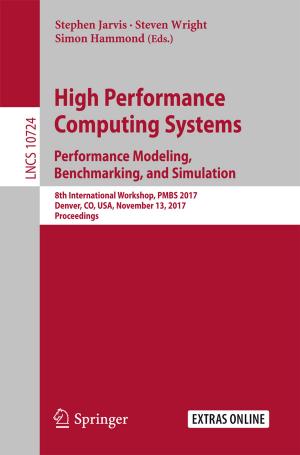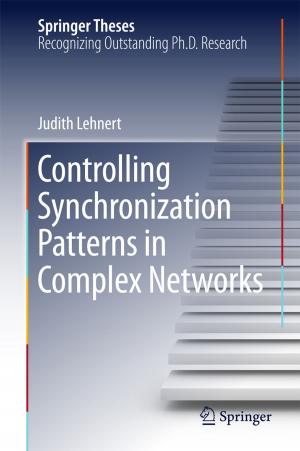Sampling Theory, a Renaissance
Compressive Sensing and Other Developments
Nonfiction, Science & Nature, Mathematics, Applied, Technology, Electronics| Author: | ISBN: | 9783319197494 | |
| Publisher: | Springer International Publishing | Publication: | December 8, 2015 |
| Imprint: | Birkhäuser | Language: | English |
| Author: | |
| ISBN: | 9783319197494 |
| Publisher: | Springer International Publishing |
| Publication: | December 8, 2015 |
| Imprint: | Birkhäuser |
| Language: | English |
Reconstructing or approximating objects from seemingly incomplete information is a frequent challenge in mathematics, science, and engineering. A multitude of tools designed to recover hidden information are based on Shannon’s classical sampling theorem, a central pillar of Sampling Theory. The growing need to efficiently obtain precise and tailored digital representations of complex objects and phenomena requires the maturation of available tools in Sampling Theory as well as the development of complementary, novel mathematical theories. Today, research themes such as Compressed Sensing and Frame Theory re-energize the broad area of Sampling Theory. This volume illustrates the renaissance that the area of Sampling Theory is currently experiencing. It touches upon trendsetting areas such as Compressed Sensing, Finite Frames, Parametric Partial Differential Equations, Quantization, Finite Rate of Innovation, System Theory, as well as sampling in Geometry and Algebraic Topology.
Reconstructing or approximating objects from seemingly incomplete information is a frequent challenge in mathematics, science, and engineering. A multitude of tools designed to recover hidden information are based on Shannon’s classical sampling theorem, a central pillar of Sampling Theory. The growing need to efficiently obtain precise and tailored digital representations of complex objects and phenomena requires the maturation of available tools in Sampling Theory as well as the development of complementary, novel mathematical theories. Today, research themes such as Compressed Sensing and Frame Theory re-energize the broad area of Sampling Theory. This volume illustrates the renaissance that the area of Sampling Theory is currently experiencing. It touches upon trendsetting areas such as Compressed Sensing, Finite Frames, Parametric Partial Differential Equations, Quantization, Finite Rate of Innovation, System Theory, as well as sampling in Geometry and Algebraic Topology.















